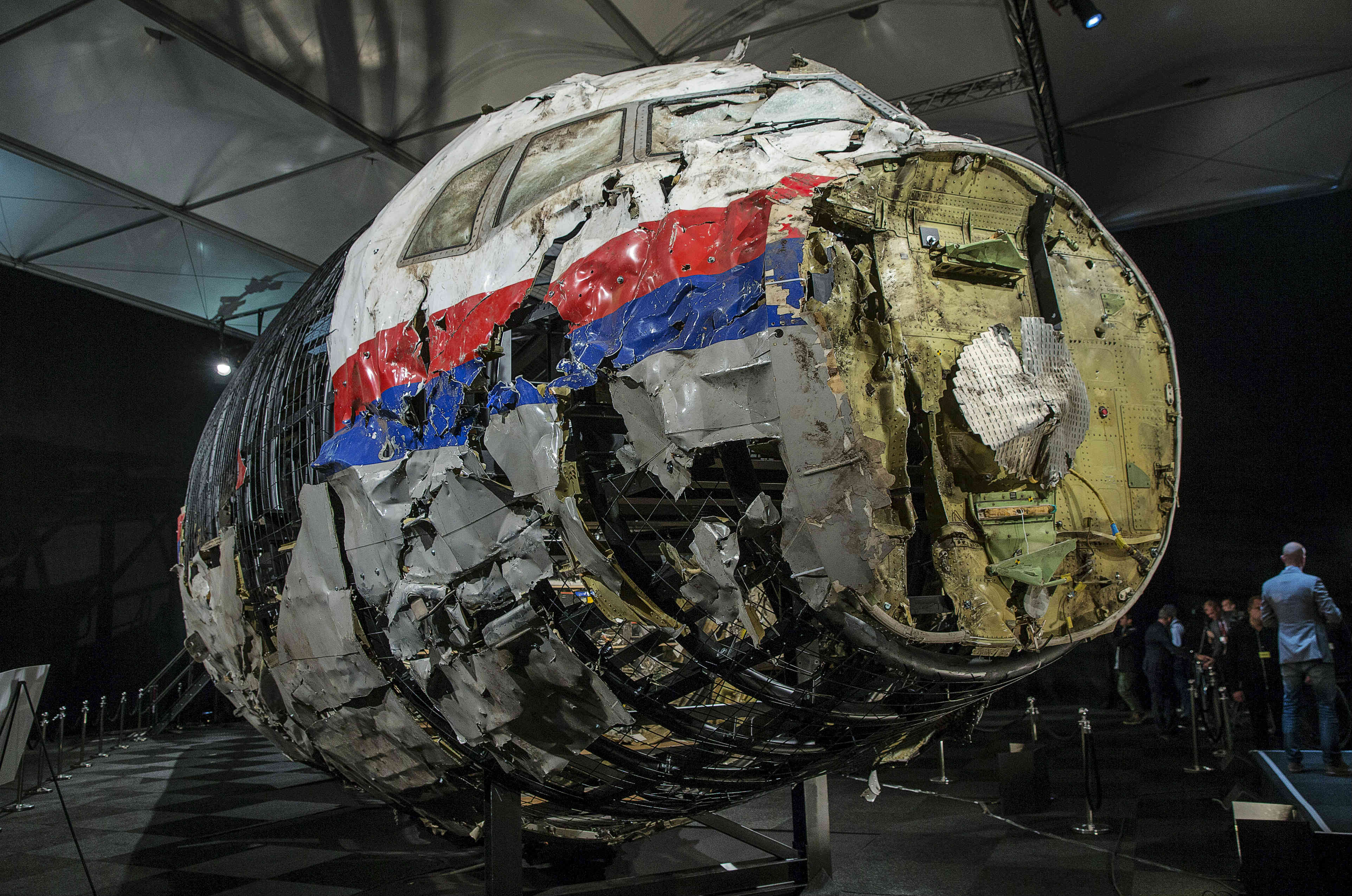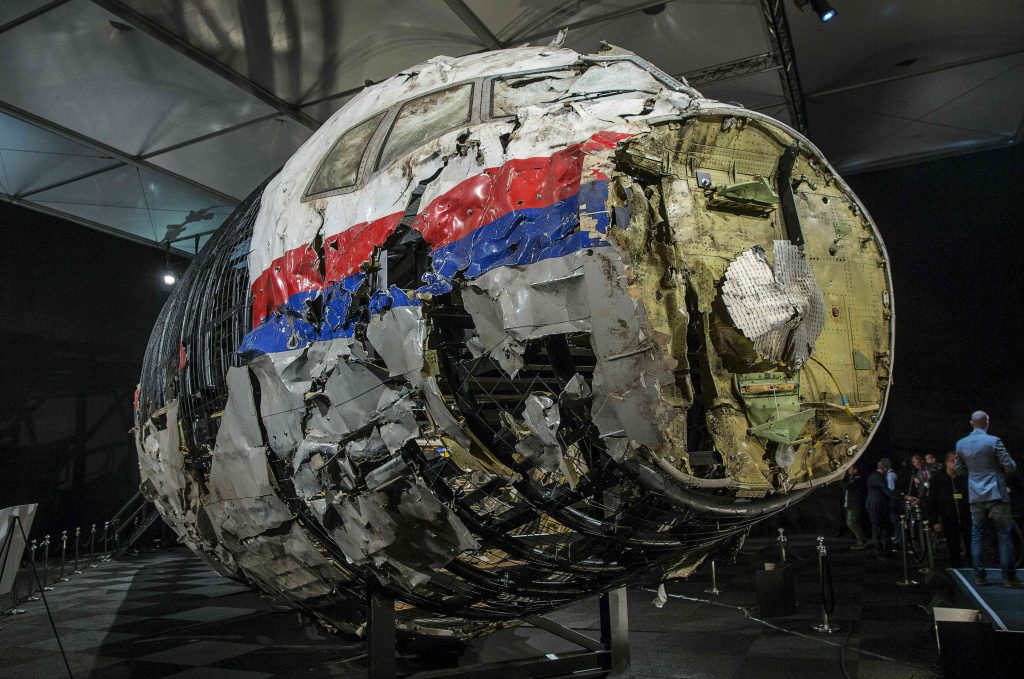 European leaders will gather in June to discuss whether to extend sanctions against Russia over the Kremlin’s hybrid war in Ukraine. The current sanctions regime will likely remain in place, but the mere fact the subject is up for debate is evidence of Europe’s alarming refusal to acknowledge the new security reality facing the continent. Many inside the EU seem unwilling to admit the twenty-five year honeymoon period of European peace and prosperity since 1991 is over. They cling to the idea of a return to the old ‘business as usual’ status quo, and appear to believe Russian aggression is only an issue for Moscow’s immediate neighbors. This policy of obstinate denial is not only morally bankrupt—it also encourages the Kremlin to escalate a hybrid war campaign designed to reverse the results of the Cold War and break up the European Union itself.
European leaders will gather in June to discuss whether to extend sanctions against Russia over the Kremlin’s hybrid war in Ukraine. The current sanctions regime will likely remain in place, but the mere fact the subject is up for debate is evidence of Europe’s alarming refusal to acknowledge the new security reality facing the continent. Many inside the EU seem unwilling to admit the twenty-five year honeymoon period of European peace and prosperity since 1991 is over. They cling to the idea of a return to the old ‘business as usual’ status quo, and appear to believe Russian aggression is only an issue for Moscow’s immediate neighbors. This policy of obstinate denial is not only morally bankrupt—it also encourages the Kremlin to escalate a hybrid war campaign designed to reverse the results of the Cold War and break up the European Union itself.
When viewed from a safe distance, history tends to look neat and tidy. It appears to us as a succession of clearly defined eras and exact dates. Up close, things are usually far more muddled. Not everyone realized it at the time, but it is now obvious the Russian invasion of Crimea in February 2014 marked the end of the post-Cold War era. By marching into another country and seizing its territory, Russian President Vladimir Putin was effectively tearing down the entire security architecture of modern Europe. In retrospect, this was the appropriate moment for an overwhelming international response. Instead, EU leaders expressed their customary “grave concern” but essentially did nothing. Unsurprisingly, this only served to encourage the Kremlin. With the ink on the Crimean annexation documents still wet, Putin inaugurated the far more ambitious Novorossiya project and sent his “little green men” into eastern Ukraine. The Age of Hybrid Hostilities was well underway. Brussels called for dialogue.
It took the deaths of nearly three hundred passengers and crew on board flight MH17 to awaken the EU from its slumber, but even the sanctions imposed in the wake of the July 2014 airline attack failed to force a radical rethink in Russian strategy. The Kremlin’s military plans in Ukraine ultimately ran aground thanks to stronger than expected Ukrainian military resistance and weaker than anticipated local support for Putin’s vision of a wider Russian World. Nevertheless, the hybrid war continues.
Ukraine remains the main theatre of operations, but it is only one of many active fronts. The Kremlin is currently waging hybrid war across the whole of Europe, weaponizing everything from the Syrian refugee crisis to Russia’s own multi-million strong immigrant diaspora. Far-right EU political parties are bolstered by Russian financing, while disinformation tactics first honed in Ukraine are deployed in Berlin and Paris. Russian jets routinely buzz NATO airspace as the Kremlin engages in nuclear bluster and conducts cross-border abductions in the Baltic states.
The EU response to this mounting aggression has been a baffling mix of collective resolution and individual accommodation. While official EU statements speak of the need to maintain sanctions until Russia withdraws from Ukraine, this has not stopped France from welcoming sanctioned Russian government ministers. Meanwhile, Germany champions increased dependency on Russian energy supplies, Spain services Russian warships, and Greece acclaims Putin himself with undisguised imperial pomp. Faced with this array of enthusiastic appeasers and apologetic opponents, you can hardly blame the Kremlin for regarding Europe’s united front as a temporary aberration, or for assuming it is only a matter of time before the tide turns in Moscow’s favor.
We find ourselves at a critical crossroads in the European story. The handling of the sanctions issue in the coming weeks will provide an indication of Europe’s readiness to acknowledge the changing security environment created by Russian aggression. Even if the existing sanctions remain in place, the discussion over their extension will shed new light on perceptions of the Russian threat in the various European capitals. The Kremlin will interpret any attempt at compromise as a sign of weakness, paving the way for further hybrid hostilities. Russia’s hybrid war tactics are rooted in the assumption that modern Europeans have no stomach for geopolitical confrontation and will always back down when faced with the prospect of having to pay a price for their principles. Ukrainians are already paying this price on a daily basis. Unless the rest of Europe is prepared to foot at least part of the bill, the outcome may well prove disastrous for the entire continent.
Peter Dickinson is the publisher of Business Ukraine magazine and Lviv Today, and editor-at-large at The Odessa Review. He was previously chief editor of Ukraine Today and What’s On Kyiv.
Image: The reconstructed wreckage of the MH17 airplane is seen after the presentation of the final report into the crash of July 2014 of Malaysia Airlines flight MH17 over Ukraine, in Gilze Rijen, the Netherlands, October 13, 2015. Malaysian Airlines Flight 17 was shot down over eastern Ukraine by a Russian-made Buk missile, the Dutch Safety Board said in its final report on the July 2014 crash that killed all 298 aboard. REUTERS/Michael Kooren
